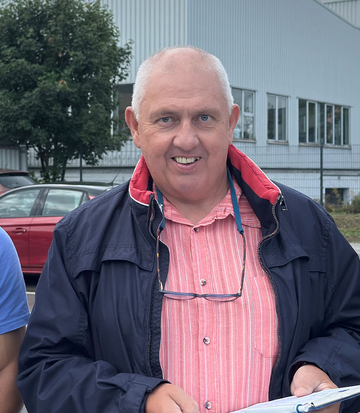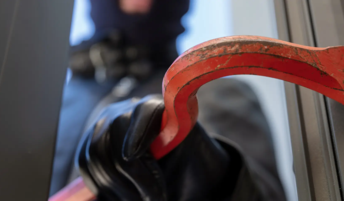
Sustainability at WILKA – More than just a trend
WILKA is not only committed to quality and innovation, but also to future-oriented, sustainable corporate management. At the beginning of 2024, WILKA established its own sustainability team, which is actively working to embed ecological and social responsibility in the various areas of the company. In this interview, Herbert Schuwald, head of the WILKA sustainability team, provides exciting insights into the goals, measures and challenges on the path to greater sustainability.
The Interview
What were the reasons for setting up the sustainability team and how important is sustainability for your company?
Herbert Schuwald: The sustainability team at WILKA was set up as a result of a combination of legal requirements, entrepreneurial foresight and personal conviction.
An important trigger was the introduction of the EU Corporate Sustainability Reporting Directive, which requires companies to report transparently on environmental, social and governance aspects from 2025 onwards. In order to establish the necessary structures and processes for comprehensive reporting at an early stage, the sustainability team was launched in March 2024.
However, the legal obligation was not the only motivation. For WILKA, as a forward-looking company, it is of central importance to actively and proactively address sustainability challenges such as climate change, resource scarcity, increasing regulatory requirements and social expectations. Companies that ignore these developments risk long-term competitive disadvantages, reputational damage and rising costs.
Furthermore, sustainability is deeply rooted in WILKA's corporate culture – not just as a response to external pressure, but out of genuine conviction. As a family-run company with a long tradition, we see it as our responsibility to operate in a resource-efficient manner and to make an active contribution to environmental and climate protection. The sustainability team helps to translate this attitude into concrete measures and to continuously develop them further – for the benefit of future generations and in line with our corporate values.
What or who exactly is behind the sustainability team at WILKA?
Herbert Schuwald: The sustainability team at WILKA currently consists of four permanent employees from different areas of the company: Human Resources, Facility Management, Purchasing and Quality Management. This interdisciplinary composition ensures that sustainability is viewed holistically and integrated into all relevant company processes. In addition, the team is supported by a dedicated working student who brings fresh perspectives and helps to implement specific projects.
What are the goals of the sustainability team at WILKA for the coming years?
Herbert Schuwald: A key concern is to create more transparency about sustainability activities and processes within the company. This includes, among other things, the preparation of an annual sustainability report that discloses how WILKA assumes ecological, social and economic responsibility – both internally and towards customers, partners and the public.
Another goal is the continuous improvement of sustainability along the entire value chain – i.e. both within our own company and with upstream and downstream partners in the supply chain.
This includes, for example, promoting resource-saving processes, working with sustainable suppliers and the long-term goal of reducing emissions and further raising environmental and social standards.
How is WILKA preparing for sustainable cooperation with suppliers and partners in order to establish responsible practices throughout the entire supply chain?
Herbert Schuwald: An important first step is to conduct targeted surveys on the topic of sustainability, which enable us to create transparency and clarify expectations.
In addition, we are increasingly evaluating our suppliers in terms of sustainability – for example, through audits and standardised supplier assessments. The results are directly incorporated into our decision-making processes.
We also pay particular attention to strengthening regional procurement structures. Wherever possible, we prefer to work with local partners. This not only reduces transport distances and emissions, but also strengthens the regional economy.
Regular communication with our suppliers and customers is also important to us. In joint discussions and cooperation formats, we identify potential, discuss challenges and develop concrete measures for greater sustainability in the value chain.
How does WILKA specifically address issues such as energy efficiency and resource conservation?
Herbert Schuwald: First, we conducted a comprehensive analysis of our existing processes. The aim was to identify potential savings and promote the efficient use of resources both internally and in collaboration with our partners.
Based on this analysis, we defined specific goals, which we are now implementing step by step. In this way, we want to improve energy efficiency in our company in the long term and reduce our greenhouse gas emissions by at least 50% by 2035.
An important step in this process is the complete conversion of our electricity supply to 100% certified green electricity. We also plan to increase the proportion of electric vehicles in our fleet to over 50%.
In addition, we are currently analysing the heat loss of our factory buildings so that we can implement targeted optimisation measures on this basis. In two of our three factories, we plan to introduce a heat recovery system with the aim of using the recovered energy for heating in the future.
We are also working on centralising the energy and heat supply for our buildings in order to create synergies and further reduce overall consumption. The installation of a photovoltaic system in one of our factory car parks is also currently being examined – including the structural requirements such as a possible roof.
Another project deals with the recording and evaluation of electricity consumption in the area of lighting. Based on these findings, we are developing specific reduction targets. At the same time, we are systematically converting all lighting in our operating areas to energy-efficient LED technology.
When making future investments in machinery, technical equipment or electronic devices, we specifically ensure that they are as energy-efficient as possible and – where available – have their own energy monitoring system.
We have also checked the compressed air systems for possible leaks. Based on the pressure losses identified, we are currently deriving measures for reduction in order to achieve further savings.
These diverse measures are an expression of our holistic understanding of sustainability, which takes equal account of ecological responsibility, economic rationality and social aspects.
How is sustainability integrated into the corporate culture?
An important part of this is notices in shared areas that regularly provide information about sustainable initiatives, current developments and practical tips. In addition, the intranet serves as a central platform where information about sustainability, internal projects and training materials is made available to all employees at any time.
In addition, regular surveys are conducted to gather employees' opinions and suggestions on the topic of sustainability, thus enabling joint development. Sustainability is also an integral part of personal discussions, such as team meetings or employee appraisals, in order to recognise individual contributions and promote an open culture of dialogue.
In addition, the topic has been included in the company's suggestion scheme, so that employees can actively submit ideas for making processes, products or the working environment more sustainable.
